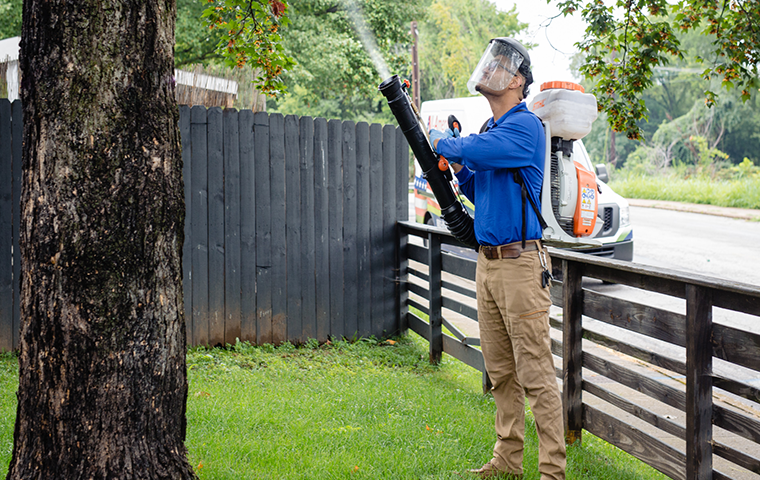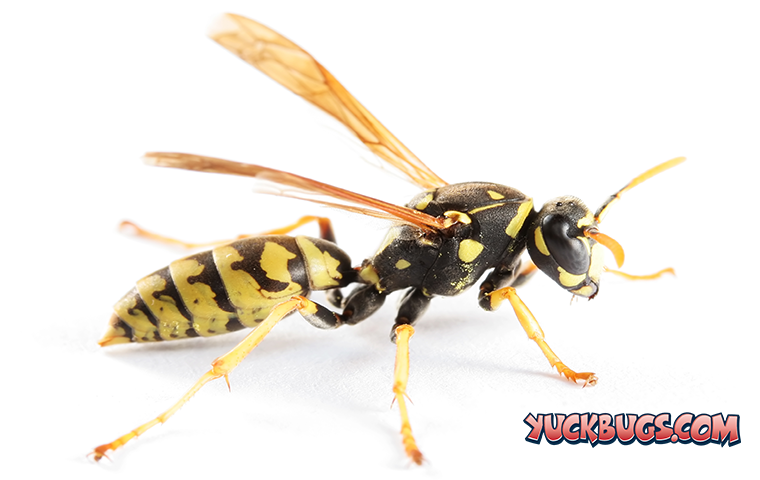In the warm embrace of Middle Tennessee's climate, the hum of mosquitoes in Franklin can often disrupt the tranquility of outdoor moments. Are all mosquitoes the same, and why should you be concerned about their presence? Join us on a journey through the intricate world of mosquito control as we unravel the mysteries behind these buzzing insects.
From understanding the diverse mosquito species to delving into the diseases they may carry, we aim to equip you with knowledge beyond basic repellents. Our guide goes further, offering bite prevention tips that not only protect you and your loved ones but also transform your outdoor experience.
And when you're wondering about reclaiming your backyard oasis, fear not. We've got you covered with insights on what will keep mosquitoes at bay, allowing you to enjoy the serenity without swatting away nuisances. Welcome to your guide on achieving complete and effective mosquito control in Franklin.

Are All Mosquitoes The Same?
In the realm of these tiny, persistent insects, diversity reigns supreme. Mosquitoes, contrary to popular belief, are not a one-size-fits-all species. With its unique climate and ecosystem, Franklin plays host to an array of different types of mosquitoes, each with its distinct traits.
Species Variation:
Mosquitoes belong to different genera, such as Aedes, Anopheles, and Culex. Understanding these variations is crucial, as different species exhibit diverse behaviors, habitat preferences, and, notably, varying levels of threat concerning disease transmission.
Feeding Preferences:
While most mosquitoes feed on nectar, it is the female mosquitoes that are the cause of our grief. They require a blood meal for egg development, and here's where the divergence becomes evident. Some species prefer humans, others birds, and some even mammals. Recognizing these preferences is key to implementing targeted control measures.
Breeding Habits:
Mosquitoes lay their eggs in various water sources, but the type of habitat can differ significantly among species. Some prefer stagnant water or tree holes, while others thrive in more temporary pools found after flooding. One can effectively disrupt their life cycle by identifying and addressing specific breeding grounds.
Potential Threats:
Not all mosquitoes are equal in terms of the diseases they may carry. Anopheles mosquitoes, for instance, are notorious for transmitting malaria, while Aedes mosquitoes can be carriers of dengue and Zika. Understanding the potential threats associated with different species enables a more nuanced and targeted approach to control.
As we unravel the intricacies of mosquito diversity, it becomes clear that a one-size-fits-all solution is inadequate. Tailoring mosquito control strategies to the specific characteristics of prevalent species in Franklin is paramount. Join us on this journey of exploration, where knowledge becomes the first line of defense against these pests.
All The Reasons Mosquitoes Are Considered So Dangerous
Here are six reasons that tiny mosquitoes are considered a huge threat to the local population:
-
Disease Vectors: At the forefront of mosquito-associated dangers is their role as vectors for various diseases. Mosquitoes are notorious carriers of pathogens, including parasites and viruses, responsible for illnesses like malaria, dengue fever, Zika virus, West Nile virus, and more. Their ability to transmit these diseases during blood-feeding poses a significant threat to human and animal populations.
-
Global Impact: Mosquito-borne diseases have a global impact. Malaria, transmitted primarily by Anopheles mosquitoes, affects millions worldwide, particularly in tropical and subtropical areas. Understanding the global repercussions emphasizes the urgency of effective mosquito control services.
-
Rapid Disease Spread: Mosquitoes can spread diseases due to their mobility. Infected mosquitoes can move from one area to another, facilitating the rapid spread of diseases and posing challenges to containment efforts, making proactive control measures crucial to prevent epidemics.
-
Impact on Vulnerable Populations: Vulnerable populations, including children, the elderly, are those who are pregnant, are at a higher risk of severe outcomes from mosquito-borne diseases. Malaria, for example, disproportionately affects young children in endemic areas, contributing to significant health and socioeconomic burdens.
-
Emerging Threats: The adaptability of mosquitoes poses an ongoing challenge. As climates change and urbanization progresses, new mosquito-borne threats emerge. Keeping abreast of these evolving challenges is essential for anticipating and mitigating potential outbreaks.
-
Disruption of Daily Life: Beyond health concerns, the constant presence of mosquitoes disrupts daily life. Sleep disturbances, discomfort, and the need for protective measures pervasively impact the quality of life for affected communities.
Understanding the gravity of these factors reinforces the importance of comprehensive mosquito control strategies.
Bite Prevention Tips: Protecting Yourself From Mosquitoes
With their itchy bites and potential disease transmission, mosquitoes often prompt the quest for effective bite prevention strategies. Here, we unravel a variety of detailed tips to fortify yourself against these pests:
-
Choose Appropriate Clothing: Start with a simple yet effective tactic—dress defensively. Opt for long sleeves, pants, and socks, particularly during dawn and dusk when mosquitoes are most active. Choose light-colored clothing, as mosquitoes are attracted to dark colors.
-
Utilize Mosquito Repellents: Invest in quality mosquito repellents containing DEET, picaridin, or oil of lemon eucalyptus. Apply these repellents to exposed skin and clothing, creating a protective barrier that deters mosquitoes from landing and biting.
-
Secure Your Sleeping Quarters: Ensure a mosquito-free zone for sleep by using bed nets pre-treated with insecticide. This step is particularly crucial in areas with prevalent mosquito-borne diseases like malaria.
-
Eliminate Standing Water: Target the source of mosquito reproduction by eliminating standing water around your home. Mosquitoes breed in stagnant water, so regularly emptying containers, cleaning gutters, and addressing other potential breeding sites reduce their population. Pay attention to trash like cups or bottle caps around your property that can be holding water as these should be quickly removed.
-
Invest in Mosquito Screens: Create a mosquito-proof haven by installing screens on windows and doors. Screens will allow you to enjoy the breeze without inviting these pesky insects into your living spaces.
-
Use Mosquito Traps: Employ mosquito traps to capture and reduce mosquito populations in your vicinity. There are a variety of kinds, and these traps can be particularly useful for outdoor spaces, creating a more comfortable environment for leisure.
-
Time Your Outdoor Activities: Plan your outdoor activities strategically. Mosquitoes are most active during dawn and dusk, so consider rescheduling activities to avoid peak biting times. If outdoor events are unavoidable, take additional protective measures during these hours.
-
Natural Repellents and Essential Oils: Explore natural alternatives like citronella candles and neem oil or essential oils such as lavender, citronella, and eucalyptus. While these may not be as potent as store-bought chemical repellents, they provide an additional layer of protection.
-
Avoid Sweet Fragrances: Mosquitoes are attracted to sweet scents. Avoid strongly scented lotions, perfumes, and shampoos, especially when venturing into mosquito-prone areas.
-
Stay Informed about Travel Destinations: If traveling to areas with high mosquito-borne disease prevalence, stay informed about recommended vaccinations and additional preventive measures specific to the region.
Integrating these bite prevention tips into your daily routine creates a robust defense against mosquito bites, ensuring a more comfortable and health-conscious lifestyle. Remember, the key lies in a multi-faceted approach that addresses both personal protection and environmental factors.
What Will Keep Mosquitoes Away From My Backyard?
Your backyard, a sanctuary for relaxation and outdoor enjoyment, can quickly become a battleground against mosquitoes. Here, we delve into strategies to repel these persistent pests and restore your outdoor space to a haven of tranquility:
-
Strategic Landscaping: Craft a mosquito-unfriendly environment by strategically landscaping your backyard. Trim overgrown vegetation, as mosquitoes often rest in shaded areas and on the undersides of leaves. Introduce mosquito-repelling plants like citronella, lavender, and marigolds to deter these insects naturally.
-
Remove Standing Water: Mosquitoes breed in stagnant water, making the removal of standing water a critical step. Regularly empty and clean birdbaths, flowerpot saucers, and clogged gutters to eliminate potential breeding grounds.
-
Outdoor Fans: Mosquitoes are not strong fliers, and a gentle breeze can disrupt their flight patterns. Install outdoor fans to create airflow, making it difficult for mosquitoes to hover around and making your outdoor space less inviting.
-
Mosquito-Repellent Lighting: Choose outdoor lighting that not only illuminates your space but also repels mosquitoes. Yellow bug lights and not-so-bright-LED lights designed to deter mosquitoes can effectively minimize their presence during the evenings.
-
Mosquito Nets and Screens: For patios, decks, or outdoor seating areas, consider installing mosquito nets or screens. This physical barrier prevents mosquitoes from infiltrating your space while allowing you to enjoy the outdoors without the constant annoyance of bites.
-
Outdoor Mosquito Traps: Integrate mosquito traps strategically in your backyard.
These traps emit attractants that lure mosquitoes in, capturing and reducing their population over time.
-
Regular Yard Maintenance: Keep your grass short and maintain a tidy yard. Mosquitoes seek refuge in tall grass and dense vegetation, so regular yard maintenance reduces potential resting spots.
-
Natural Repellents: Explore natural mosquito repellents for your backyard, such as citronella candles, neem oil, or essential oil diffusers. These options provide an additional layer of defense without resorting to chemical solutions.
-
Professional Mosquito Control Services: For a comprehensive and tailored approach, consider enlisting the expertise of professionals. Our team at All-American Pest Control specializes in targeted mosquito control, offering solutions designed to effectively address your backyard's unique characteristics and mitigate mosquito-related challenges.
Turn to All-American Pest Control for total mosquito control near you. As you strive to reclaim your backyard from the constant buzz of mosquitoes, trust the expertise of All-American Pest Control. Our team is dedicated to providing personalized and effective mosquito control services, ensuring your outdoor space remains a haven for relaxation and enjoyment. Contact us today to experience the joy of a mosquito-free backyard; keep mosquitoes away for good.
 1277 Reviews
1277 Reviews








